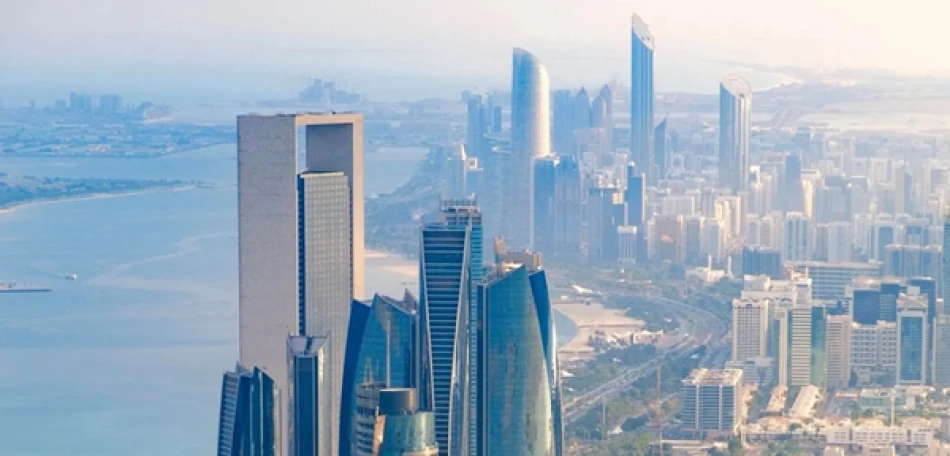
Holding Company Finalizes Majority Stake Acquisition in Aramex
ADQ Completes Strategic Takeover of Aramex, Cementing UAE's Logistics Dominance
Abu Dhabi sovereign wealth fund ADQ has successfully acquired a controlling 63.16% stake in regional logistics giant Aramex, marking a pivotal moment in the UAE's strategy to dominate Middle Eastern trade corridors. The acquisition, now unconditional after receiving all regulatory approvals, positions ADQ to build an integrated logistics empire spanning air, sea, and land infrastructure across 65+ countries.
A Calculated Move in Global Supply Chain Chess
The takeover represents more than a simple acquisition—it's a strategic chess move in the global supply chain game. ADQ, through its wholly-owned subsidiary Q Logistics Holding, has been methodically building a logistics ecosystem that now includes Abu Dhabi Ports alongside Aramex's extensive delivery and warehousing network.
This consolidation comes at a critical juncture when supply chain resilience has become a national security priority for governments worldwide. The COVID-19 pandemic exposed vulnerabilities in global logistics networks, prompting sovereign wealth funds to invest heavily in supply chain infrastructure.
Aramex: More Than Just a Delivery Company
Geographic Reach and Infrastructure Scale
Aramex brings substantial assets to ADQ's portfolio: operations spanning over 65 countries, a leading transport network across the Gulf Cooperation Council states, and 800,000 square meters of global warehouse space. These capabilities complement ADQ's existing infrastructure investments, creating potential synergies that could reshape regional logistics.
The Last-Mile Advantage
While ADQ controls major ports and transport hubs, Aramex provides the crucial last-mile delivery capabilities that connect infrastructure to end users. This vertical integration mirrors successful models employed by logistics giants like Amazon, which has invested billions in building end-to-end supply chain control.
Regional Context: The UAE's Logistics Ambitions
The acquisition aligns with the UAE's broader economic diversification strategy, positioning the country as a global logistics hub connecting Asia, Africa, and Europe. This mirrors Singapore's successful transformation into a logistics powerhouse, though the UAE benefits from its strategic location and significant sovereign wealth resources.
Dubai has long dominated regional logistics through Emirates airline and DP World ports, but Abu Dhabi's aggressive consolidation strategy through ADQ suggests intensifying competition between the emirates for logistics supremacy.
Market Implications and Investor Perspective
Consolidation Trend Accelerates
The logistics sector has witnessed significant consolidation globally, with private equity and sovereign funds acquiring regional players to build scale. ADQ's move follows similar patterns seen in other emerging markets, where state-backed entities are creating national champions in strategic sectors.
Competitive Dynamics Shift
For competitors like DHL, FedEx, and UPS operating in the Middle East, ADQ's integrated logistics platform presents both challenges and opportunities. The state backing provides ADQ with patient capital and regulatory advantages, but also creates a formidable competitor with deep pockets for expansion and price competition.
Strategic Vision: Building an Integrated Logistics Ecosystem
Mansour Al Mulla, ADQ's Deputy Group CEO, emphasized the strategic nature of this acquisition in building a "comprehensive global and integrated logistics platform." This vision extends beyond traditional logistics to encompass trade facilitation and supply chain solutions—services that generate higher margins than basic transportation.
The integration challenges will be significant. Merging Aramex's entrepreneurial culture with ADQ's state-backed approach requires careful management to preserve the agility that made Aramex successful while leveraging the scale advantages of the larger organization.
Long-term Outlook: Positioning for Growth
This acquisition positions the UAE to capitalize on several global trends: the growth of e-commerce requiring sophisticated last-mile delivery, the regionalization of supply chains as companies reduce dependence on single countries, and the increasing importance of the Middle East as a trade corridor between major economic blocs.
Success will depend on ADQ's ability to execute integration while maintaining Aramex's operational excellence. The stakes are high—not just for ADQ's investment returns, but for the UAE's ambitions to become an indispensable node in global trade networks.
Most Viewed News

 Layla Al Mansoori
Layla Al Mansoori






